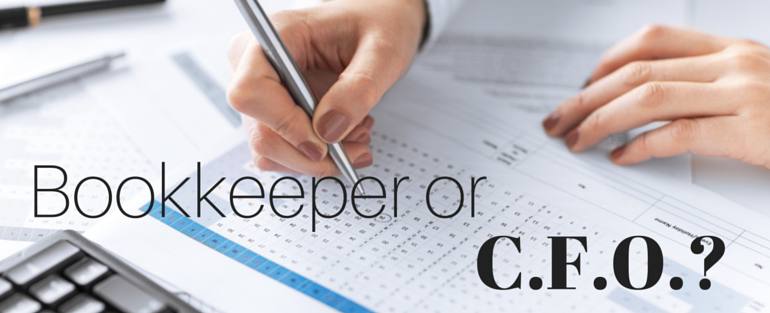
– Bookkeepers Pay Attention to Detail
– Bookkeepers Recognize Trends
– Bookkeepers are Objective
– Bookkeepers Stand Firm
– Bookkeepers Account to the Penny
– How Bookkeepers Differ from CFOs
– CFO Services from Intigro
Using a football analogy, the bookkeeper is the offensive line of the accounting process. They protect the quarterback: the CFO and CEO. Some of the greatest quarterbacks are only great because of their offensive line. While touchdowns win games, the offensive line can make or break a victory. Outside of training and qualifications, the things that makes a good bookkeeper great are generally less direct and more task oriented personality traits. A person who possesses these traits and who has proper training and great experience, can become less of an expense and more of an asset to a company (though one can’t put that on a balance sheet).
A great Bookkeeper Pays Attention to Detail
Numbers are black and white. If they are off, it’s wrong. Numbers are beautiful because one knows when they are irrational or negative without guessing, but numbers speak their own language that require a strict attention to detail to master. A good bookkeeper will write down a number. A great bookkeeper double checks them backwards and forwards.
A Great Bookkeeper Recognizes Trends
The numbers are a direct reflection of behavior trends within an organization. Every month, most expenses are either the same, or close in amount. If the electric bill for a building is around $100 to $130 a month, and one month it’s $300, an average bookkeeper will report the $300 as an expense, but a great bookkeeper will recognize the unusual amount, and either look into why it was higher that month than previous months or let his superior know that the amount was considerably higher than usual.
A Great Bookkeeper is Objective
The bookkeeper is usually the one who objectively delivers good or bad news, whether someone’s paycheck was smaller than expected, or a report to the CEO a company’s profit or loss. They also hear a lot of complaints from all ends. The very core of their job is to report the numbers, which many consider the most boring aspect of a company and do not have much time for them. A great bookkeeper is bold enough to tell their superiors the complete truth, especially what they don’t want to hear because that’s usually what they need to hear. They need to speak to the point without circular reasoning that dances around the topic.
A Great Bookkeeper Stands Firm
The bookkeeping job entails negotiating with payables, collecting from receivables, and communicating with auditors. A great bookkeeper has a strong backbone and thick skin; they cannot be afraid to say no. They cannot be wishy-washy when it comes to collections. Some bookkeeping responsibilities require work with small contract negotiations, whether they negotiate the contracts or implement contracts, and that is where one really wants someone who stands firm.
A Great Bookkeeper Accounts to the Penny
Reconciliation is the process of discovering accounting errors. A bookkeeper’s job is to find those errors to produce the most accurate, reliable data a CFO can use. Sometimes, when reconciling accounts, the two end numbers are off a few cents (both numbers should equal). Many bookkeepers will adjust it out by creating a debit or credit for a few cents to make it even. It’s faster and the job is done. The problem with that is usually there is more than one accounting error. A few cents in reconciliation doesn’t necessarily mean a few cents. Many times, it can be multiple transactions totalling thousands of dollars, some debits, some credits, that make it appear that it’s only off a few cents.
A great bookkeeper is not a CFO.
A CFO lives in the present and looks to the future.
- A CFO bases decisions on experience, great analysis, and intuition with innovation and growth in mind. They are creative thinkers who can think outside of the box to solve problems and look to the future to prevent problems.
- A great bookkeeper is rather the opposite, they focus on what has happened and account for it.
- A CFO’s job is to take the reports and compare and contrast those reports to past reports and forecast the future based on the pattern with the corporate mission statement and objectives in mind.
- A bookkeeper’s job is to make sure those reports are very accurate.
- A CFO is a key decision maker for the company as a whole.
- A bookkeeper is a reporter of numbers.
- A CFO understands accounting like a CPA or bookkeeper while providing the company with the art of management on the level of a CEO.
- A bookkeeper is a part of the CFO’s team.
- A CFO is truly the bridge between the two worlds.
- The bookkeeper is a CFO’s greatest asset in the development of a company.
Intigro offers outsourced CFO services.
Often times, a company does not need a full time CFO, although they need a full time bookkeeper. So, with Intigro a company can receive the services of a high powered CFO, for just the amount of time a company may need.
Contact us today for a free discovery meeting!
Contact us to set up a free discovery meeting!


